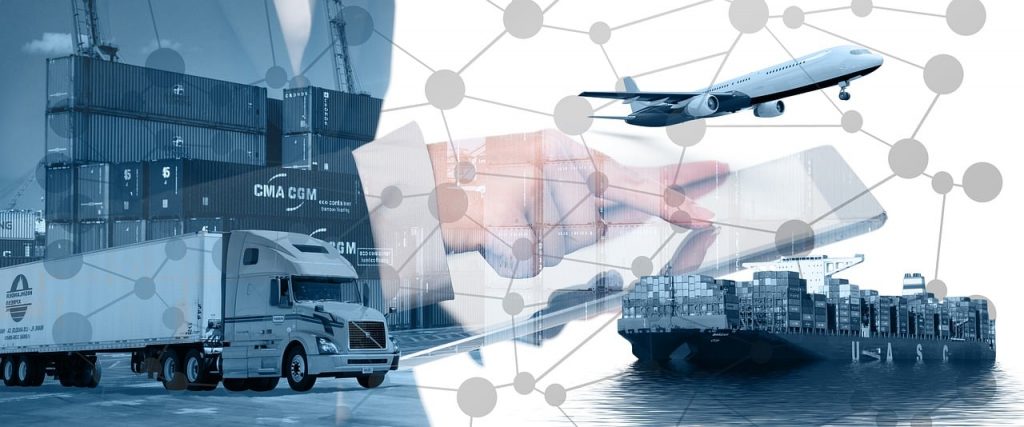- AI improves logistics by enhancing warehouse operations, route optimization, customer service, and sustainable practices.
- Logistics companies utilize AI for efficient inventory management, picking optimization, and predictive maintenance.
- AI-powered route optimization reduces delivery time and costs, while AI chatbots enhance 24/7 customer service.
- AI enables logistics companies to make sustainable choices, optimizing energy consumption, and reducing carbon footprint.
- AI aids in accurate demand forecasting, cost reduction, and potential disruption identification in supply chain management.
In today’s fast-paced world, logistics ensures businesses deliver their products and services on time. Be it transportation, warehouse management, or inventory control, logistics requires the optimization of resources and a high level of efficiency. Recently, Artificial Intelligence (AI) is proving to be a game-changer in the logistics industry. AI has been widely adopted to improve supply chain processes in countries like Japan, Singapore, and the United States. It reduces operational costs, enhances productivity, improves customer satisfaction, and breaks barriers in the logistics sector. This blog will examine how AI is reshaping the logistics industry.
Warehouse Management:
For logistics companies, warehouse management is critical for operational success. AI can improve it at every level, from receiving goods, picking and packing, to dispatch. Here are some examples of how AI is revolutionizing warehouse management:

Automated Inventory Management:
With the help of AI-powered cameras and sensors, warehouses can automate inventory tracking. This reduces human error and saves time, allowing employees to focus on other critical tasks. If a specific item is out of stock, AI-powered inventory management systems can automatically reorder it, ensuring that warehouses never run out of stock.
Predictive Maintenance for Warehouse Equipment:
AI can also be used for predictive maintenance in warehouse equipment. By analyzing data from sensors and equipment, AI can predict when maintenance is required, preventing costly breakdowns and improving warehouse efficiency. For example, an internal combustion engine forklift requires regular maintenance to keep its mechanisms in the best condition. However, the vehicle can be equipped with sensors that collect data on engine temperature, oil pressure, and fuel consumption. This data can then be analyzed by AI to predict when maintenance is required, ensuring that the forklift is always in optimal working condition.
Picking Optimization:
AI can help optimize warehouse picking processes by analyzing order transactions and predicting demand patterns. By doing so, warehouse managers can reduce the time and cost of picking goods, increasing efficiency and accuracy.
Warehouse Layout Optimization:
AI algorithms can optimize the layout of a warehouse by using historical data and real-time information. This ensures that goods are stored most efficiently, reducing travel time for employees and minimizing errors. If there is a change in demand or new products are added, AI can quickly reconfigure the layout to accommodate any changes.
Finding Optimal Routes:
Route optimization is critical for logistics companies as it enables them to deliver goods on time, avoiding delays and reducing costs. By leveraging data analysis and machine learning, AI helps logistics companies determine the most efficient truck routes. AI algorithms can consider factors like traffic, real-time weather conditions, and route restrictions to reduce the time and cost associated with delivery. This enhanced route planning system ensures that companies can meet customer demands, increase delivery speed and accuracy.

Customer Service:
In today’s competitive environment, customer satisfaction is the key to long-term success for any business. Logistics companies leveraging AI can improve customer service significantly. Chatbots that AI powers can provide 24/7 customer support and quickly resolve customer issues. Additionally, AI algorithms help logistics companies predict future issues that customers might face, enabling them to find effective solutions in advance. By doing this, companies can anticipate customer demand and provide a more personalized service, increasing customer satisfaction.
Enhancing Sustainability:
AI is critical for making sustainable choices in the logistics sector. Electric and hybrid fleets and renewable energy are fast becoming the norm for logistics companies. By leveraging AI to monitor energy consumption patterns, companies can optimize their energy consumption and reduce their carbon footprint. Fossil fuels are a scarce resource; therefore, optimizing energy usage reduces fuel wastage, costs, and environmental impact.
Improving Supply Chain Management:
The supply chain involves the flow of goods and services from manufacturers to consumers. Aside from the areas mentioned above, AI can also improve supply chain management in various ways. It helps logistics companies forecast demand accurately, reduce inventory costs, and identify potential disruptions in the supply chain. By doing so, AI enables companies to proactively manage their supply chain and avoid costly delays or shortages.
AI is an innovative solution that is reshaping the logistics industry. By enhancing warehouse management, optimizing routes, improving customer service, promoting sustainable practices, and improving supply chain management, AI is a game-changer for logistics companies worldwide. As the world continues to see advancements in technology and the adoption of AI, it’s clear that the future of logistics will be driven by smart solutions that enhance efficiency, reduce costs, and ultimately improve customer satisfaction.

